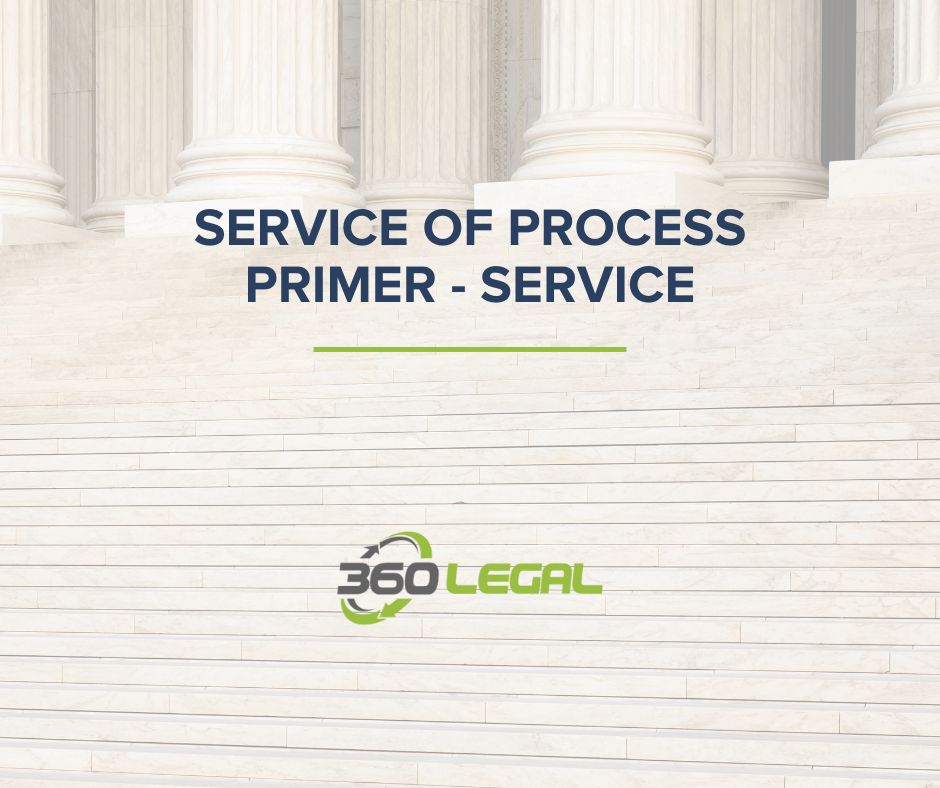Testing RSS Feeds.. ignore post.
Testing RSS Feeds.. ignore post.
Service of Process Primer – Service

Service of Process Primer – Service
Every jurisdiction has guidelines for proper service of Process. For example, a summons and other related documents must typically be served personally on the defendant or, in some circumstances, on another person of legal age and discretion at the defendant’s residence, place of business, or place of employment. In some cases, such as in some small claims court procedures, service of Process may be accomplished through the mail. In exceptional circumstances, procedural rules or court orders may permit other forms of service, such as service by publication, when a person cannot be located in a particular jurisdiction.
The initial step in establishing the court’s personal jurisdiction over the person served is proper service of Process. The court or administrative body may find the defendant in default and grant relief to the claimant, petitioner, or plaintiff if the defendant disregards additional pleadings or abstains from the proceedings. In their home state, the defendant may appeal the default. Between the parties to the litigation, service of Process must be distinguished from service of additional documents (like pleadings and motion papers).
Rule 4 of the Federal Rules of Civil Procedure governs the service of Process in cases brought before the United States district courts. Part 6 of the Civil Procedure Rules 1998 in England and Wales contains document service regulations. In Canada, the laws differ from province to province and can be handled in various ways depending on the situation (i.e., family, small claims, criminal, etc.).
Suppose the recipient’s nation is a signatory to the Hague Service Convention. In that case, special guidelines must be followed when serving a defendant who lives in a nation, not under the court’s jurisdiction. The letters rogatory process is used in many South American nations and others to serve defendants. In cases where it is unclear where a defendant is, a court may approve publication in a newspaper as a means of serving them. the type of service
T: +1 (888) 360-legl (5345)
@: info@360legal.net
Author
We are Social!
Latest tweets
Popular Tags
Testimonials
"5 star service ! prompt serving, helpful, professional . "
"Mike is awesome. Our firm has hired him on several occasions and we are very happy with his work. His prompt serving, helpful, professional and always in communication. I recommend him highly! "
"360Legal provides speedy and easy to use Process Service that is flexible, and very transparent with nearly instant reporting. It is very helpful for us to be able to track the status of our process service jobs, especially when they are time sensitive. "
Latest News
-

RMAI 2021 Annual Conference RMAI Annual Conference
April 12-15, 2021 -

NATIONAL CREDITORS BAR ASSOCIATION 2020 SPRING CONFERENCE
May 19-21, 2021 -

ALFN ANSWERS 2021
Jul 18-21, 2021 -

Annual Convention and Expo
Oct. 17-21, 2021 -

Florida Association of Professional Process Servers 33rd Quarter Board Meeting/Professional Beach Getaway
Aug. 20-22, 2021












